U.S. Student Protesters Face Key Difference on Campus One Year After Oct. 7: Red Tape
There are big changes to how universities handle free expression
The Israel-Hamas War has triggered a slew of campus protests across the U.S. that have resulted in big changes to how universities handle free expression.
Since Hamas' attack on Israel on Oct. 7 last year and the subsequent military retaliation, campuses have become hotbeds of political activism, with students, faculty, and staff split over their support for Israel or Palestine.
Protests organized by groups like Students for Justice in Palestine have been met with counter-demonstrations from pro-Israel organizations such as Hillel, with tensions frequently spilling over into confrontation between students and police. The clash of ideologies has forced universities to balance the right to free speech with concerns about maintaining campus safety and addressing hate speech.
Over the past year, many universities have revised their campus free expression policies in response to the spring protests. Previously open-ended guidelines have been replaced with more specific rules, particularly targeting behaviors seen during the protests, such as encampments and actions that could be considered disruptive to avoid lawsuits and congressional hearings.
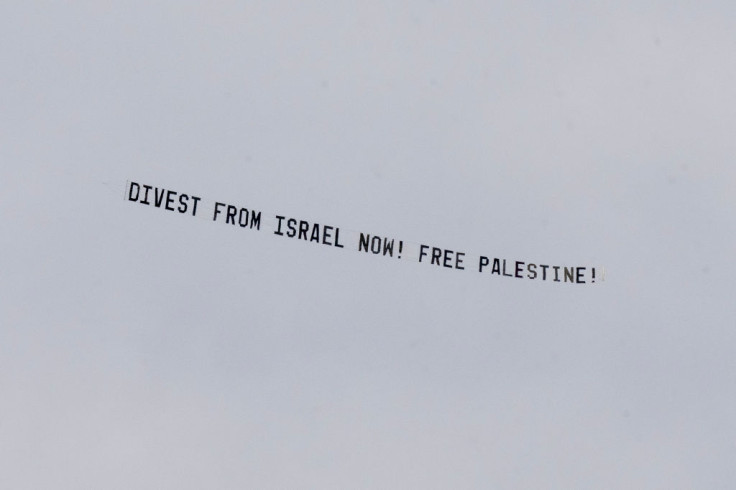
At Indiana University, for instance, the protest policy was updated in August to make it clear that while the school supports protests, they must not interfere with university operations or hinder others' rights to free expression.
"In order for free speech for all to flourish, we needed to clarify our policies so people clearly understand the allowable time, manner and place for free expression," the school's board of trustees said at the time.
While the new policy permits actions such as assembly in public areas, peaceful protesting, making speeches and carrying signs, it prohibits constructing temporary structures without approval at least 10 days in advance, outdoor amplified sounds that disrupt others and applying permanent markings to university property.
Similar revisions were made at universities in Texas and Virginia before the fall semester, with policies regulating not only student expression but also that of university administrators.
The University of Texas Board of Regents, for example, amended its free speech policy to prevent the system and its 14 institutions from officially endorsing political or social positions.The new policy states that, "Institutions should not, in their official capacity, issue or express positions on issues of the day, however appealing they may be to some members of the university community." However, individuals are still free to express themselves in a personal capacity.
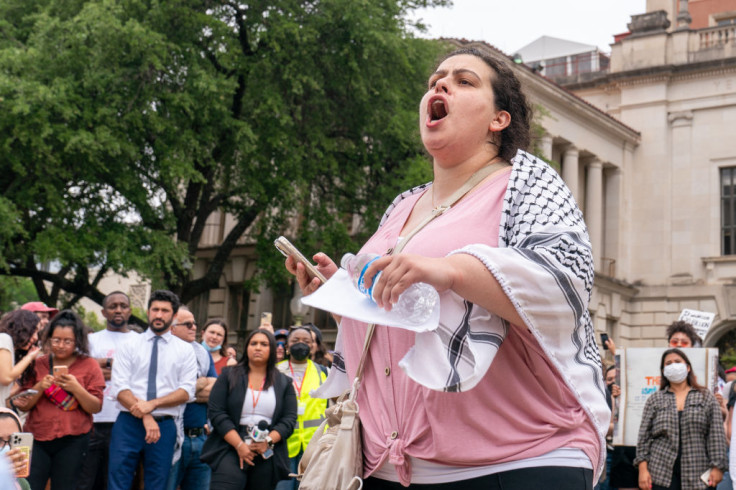
According to UVA President Jim Ryan, the policies are designed to ensure that the university remains a place of open inquiry while also protecting the rights of all community members to access shared spaces without disruption. Notably, the new policies restrict the use of structures like tents in the historic Academical Village, prohibit outdoor events between 2 and 6 a.m., and place limitations on camping and face coverings during protests.
Meanwhile, Harvard University's updated "campus use" rules, announced on Aug. 1 by Executive Vice President Meredith Weenick, include stringent measures that could impact student demonstrations, such as the 20-day pro-Palestine encampment from last spring. Students now need administrative approval before engaging in activities like chalking sidewalks, pitching tents, putting up art exhibits or using public spaces, with potential consequences for non-compliance.
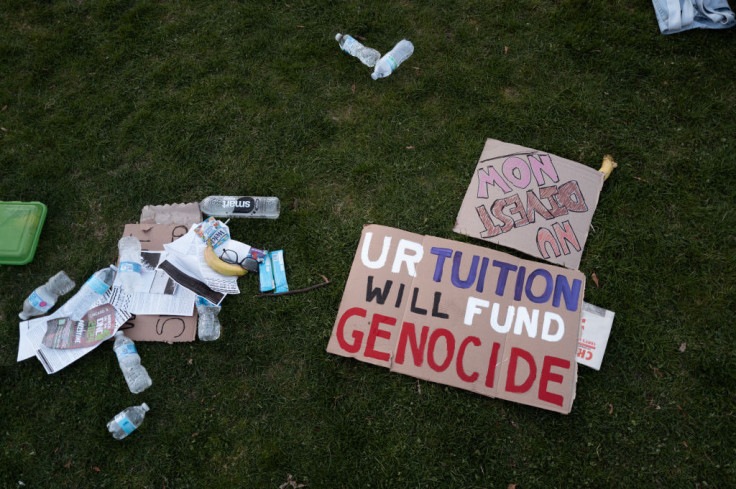
Students at Case Western Reserve University in Ohio also must now seek administration approval before protesting, while Rutgers University students will need to get a permit from the school.
Other schools like Columbia University implemented a more restrictive approach by cordoning off certain areas of campus during move-in day, allowing access only to authorized individuals in an effort to prevent disruptions.
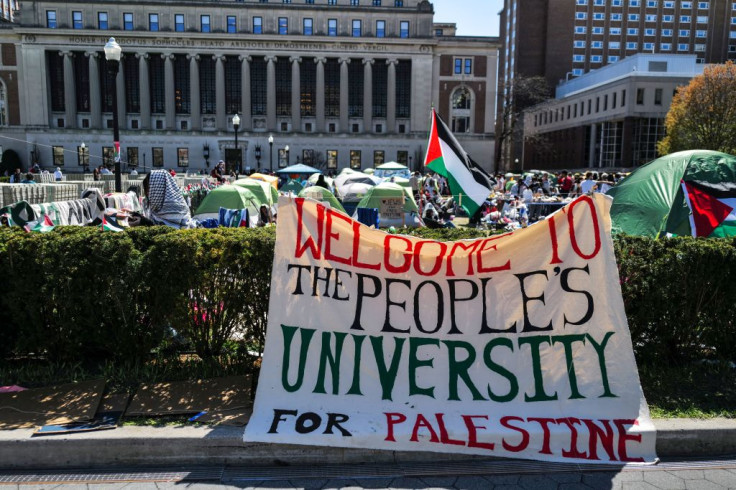
A legal response
The legal landscape surrounding free speech on college campuses has also evolved in the wake of the conflict.
Several states, including Florida and Texas, have introduced or passed legislation targeting what they view as antisemitic or anti-Israel activity at higher education institutions. These laws aim to prevent divestment efforts from gaining traction, citing it as discriminatory against Jews.
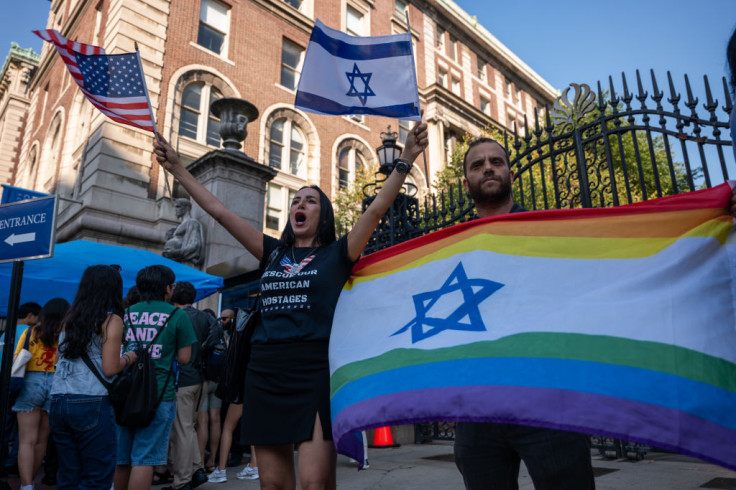
However, civil liberties groups have pushed back, arguing that such laws infringe on students' First Amendment rights to express their political views. The legal debate over how far universities can go in regulating speech on contentious political issues remains unresolved, with several high-profile lawsuits underway.
University administrations have taken further steps to deal with the volume of disciplinary cases, such as hiring outside consultants and enacting new regulations, in an effort to avoid similar demonstrations.
But some congressional leaders and judges say that's not enough, accusing schools of failing to adequately discipline protesters who caused significant disruptions and neglecting to protect Jewish students from discrimination.
It remains unclear how the new regulations introduced by many universities will impact future campus protests. So far, the scale of protests has been significantly smaller compared to last spring. While some protests have led to arrests, no new encampments have appeared, suggesting that students are largely complying with the updated guidelines. University administrators caught between calls for free speech and demands for protection from hate speech continue to grapple with finding the right balance.
As the Israel-Hamas conflict shows no signs of resolution, the battle over free expression on U.S. campuses is likely to continue.





















